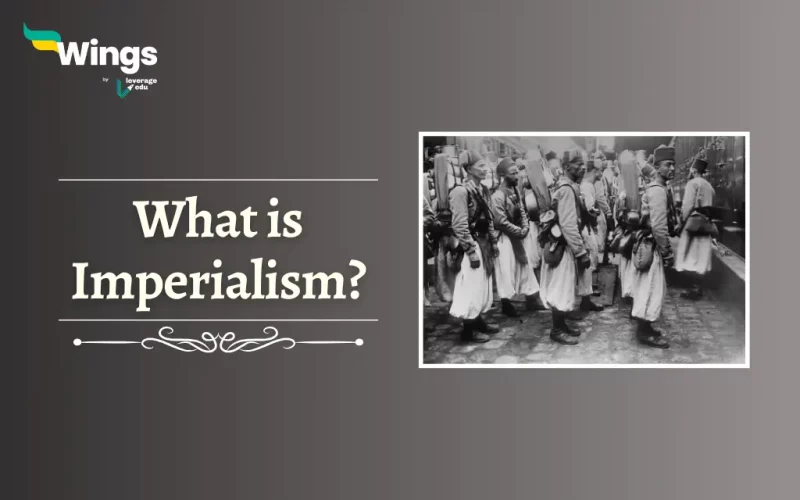Imperialism is about powerful nations extending their control over weaker ones. It is like a bully on a global scale. This can be done directly, by conquering and ruling new territories, or indirectly, by influencing their economies or politics. The main goal is to increase the empire’s wealth and power. Additionally, Imperialism usually involves military force but can also use cultural influence or economic pressure. It is a complex topic with a long history, but it boils down to powerful countries dominating weaker ones for their gain.
Table of Contents [show]
What Does Imperialism Mean?
Take, for example, chocolate chip cookies, which are one of your favourite snacks. Consider these cookies now as priceless resources, such as gold, spices, or land. In history, powerful nations like Britain, France, and Spain wanted more of these “cookies” (resources) than they had. They then set out to steal them from other nations.
Imperialism can manifest in a variety of ways. Sometimes it involves deploying armies to conquer uncharted territories, as was the case when European nations colonised Africa in the 19th century. Other times, it is more hidden, like when a powerful country subtly dominates a weaker country’s politics and economy without formally taking control of it.
Also Read: The Disintegration of USSR | World History Notes
What is an Example of Imperialism?
The British Empire and India are a well-known example. The British desired to have control of wealthy India for themselves. As a result, they began to gradually take over India in the 18th century.
- First, they established trade and built forts.
- Then, they took over the whole nation, by gaining control of India’s government.
- They made the rules and decided what the future of India would look like.
But here’s the catch: the British were not just after the power. They made the Indian people grow spices and food items and sell them to the British at low prices. Moreover, it is like the British not only took the salad but also the recipe and the kitchen!
Also Read: 9 Principles of Indian Foreign Policy
What are the Three Stages of Imperialism?
In addition, here are the three stages of Imperialism:
- Mercantilism (15th-18th centuries): European powers concentrated on building wealth through trade.
- Colonies provided raw materials and new markets for manufactured goods.
- Think of it as a giant game of mercantilism where empires competed for the most profitable trade routes and resources.
- New Imperialism (18th-early 20th century): This is the age of territorial expansion. Driven by competition and a desire for resources, European powers carved up much of Africa and Asia, directly controlling vast territories and their people.
- Finance and Informal Imperialism (late 19th-20th centuries): Economic power became the new focus.
- Instead of direct control, empires exerted influence through loans, investments, and political pressure.
- This allowed them to maintain control over resources without the burden of direct administration.
In a nutshell, imperialism can be compared to a powerful country’s effort to snag more cookies from the jar, frequently by taking over their neighbours’ kitchens and culinary traditions. It is a complex and controversial part of history, showing how powerful nations can reshape the world for better or worse.
Related Blogs
Lastly, we hope you liked our blog and gained an understanding of What is Imperialism. Moreover, you may even read more blogs and empower yourself with knowledge regarding Civics and Polity!
 One app for all your study abroad needs
One app for all your study abroad needs















 45,000+ students trusted us with their dreams. Take the first step today!
45,000+ students trusted us with their dreams. Take the first step today!
